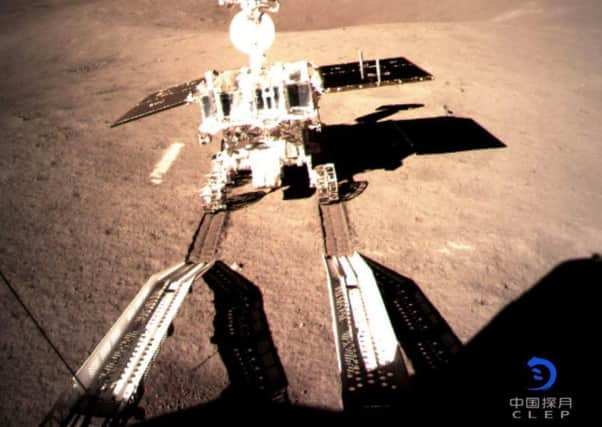Column: Let us admire the Chinese way


It is part of the human condition. Shakespeare wrote about it and it is a part of our daily lives... should we be surprised that jealousy is being exhibited on an international scale?
Only a week ago, the world was stunned to be told that China had achieved what no other nation on earth had done before and landed a spacecraft on the far – unseen - side of the moon.
Advertisement
Hide AdAdvertisement
Hide AdThe achievement was significant by anyone’s reckoning. In order to be able to control the probe on its approach to one of the largest craters on that side of earth’s satellite, the Chinese had first to build and position a satellite with which to bounce remote control instructions from earth.


Although it has long held the ambition of becoming a space nation and indeed has previously voiced its desire to put mankind back on the moon again – to live – very little about the mission had previously been made public.
It was therefore with some amazement that the international press reported China’s confirmation of having achieved its goal of placing the Chang’e 4 Lander and the Yutu-2 rover in a 13 kilometre deep crater which both will now explore.
The fact that nobody else managed to do the same thing despite many years of previous space activity made the achievement all the more remarkable.
Advertisement
Hide AdAdvertisement
Hide AdChina already has a Chang’e 5 mission in the pipeline; for now though the priority is to investigate the rockier side of the moon... and its minerals.
If man is ultimately to travel to other planets, the moon is likely to play a significant part in making those plans a reality. It would make a logical departure point for journeys to Mars. It might also yield massive potential from those minerals and their use back on earth.
Reportedly there are vast reserves of water held in ice on the moon and these could be exploited to produce rocket fuel, so the potential prize for such endeavour is colossal.
The timing of China’s announcement was remarkable.
Some viewed it as spiking the guns of NASA scientists, who reported almost simultaneously the flyby of the New Horizons spacecraft with the most distant heavenly body that mankind has engaged with to date.
Advertisement
Hide AdAdvertisement
Hide AdTwenty miles long and orbiting slowly far out in space, the twin-lobed Ultima Thule is over four billion miles away.
Previous descriptions of the rock as a peanut spinning like a propeller have been replaced by those of a reddish brown snowman. Basic descriptions perhaps, but validated by the photographs sent back so far.
Theories as to how Thule formed will form the basis of thinking for future encounters elsewhere, no doubt.
With both stories, the potential to celebrate scientific achievement was huge. Why then was China’s announcement reported as a propaganda coup?
Advertisement
Hide AdAdvertisement
Hide AdIt was as though some in the west were jealous of that country’s membership of the space club.
Space is not the preserve of a single country, or even species. Man’s development so far puts us in the infancy of our abilities and with much to learn.
China’s is a step forward for us all, so why the journalistic jealousy?
In Surrey, a multi-billion pound satellite business has been developed by scientists. If Britain is to be expelled from European space activities like the Galileo project after Brexit, we need to find new partners with whom we can jointly exploit alternative opportunities.
Ridiculing China and its achievements won’t assist this. Our economy needs to be looking for new collaborations.
Perhaps we should be demonstrating a little more respect.